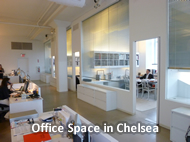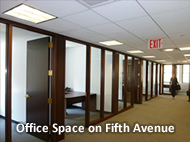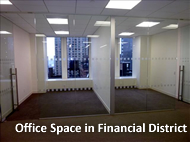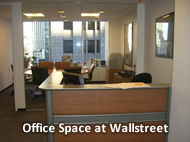
Real Estate: Lease vs. Buy
Lease or buy? When your business is ready for a new office space, that is a very challenging and important question. No two businesses are alike, so there is no magic answer that applies to every situation. However, here are some factors that every business contemplating a real estate buy should take into consideration in order to make an informed decision.
Immediate Expense
When you find commercial real estate to buy and are ready to finalize
the purchase, expect to make a down payment ranging between 10 and 25
percent of the total price. The initial expense of a commercial lease
is much less, usually just the first and last months’ rent. In
most cases, this amount is a small fraction of the capital expense required
to initiate a real estate buy.
Lost opportunity?
Laying down a significant amount of capital for a real estate investment
means that money won’t be used for anything else. Can your business
afford the investment? Is there another use for that cash that might
yield more returns?
Long-term costs
With any real estate investment, a big benefit of buying vs. lease is
having exact knowledge of what your future expenses will be (if, of
course, you have a fixed rate mortgage). Leasing real estate leaves
you exposed to the ups and downs of the market, making future payments
unpredictable. A real estate buy will grant predictability and can be
a source of capital should you sell in the future.
Growing or downsizing?
When considering how to buy real estate, be sure you have a very accurate
picture of what your company’s future looks like. Are you expecting
to expand? Is your market contracting? If you’re a start-up venture
hoping to grow, buying vs. lease might not be the best option. A lease
will allow your company the flexibility to expand with fewer headaches.
Conversely, a well-established, stable business might make a better
real estate investment by purchasing.
Responsibilities of Ownership
When deciding if and how to buy real estate, consider all related costs.
If your company leases a space, your landlord will be responsible for
property management, lifting a major burden from your shoulders. Should
you choose to purchase real estate, be prepared to fund and manage all
maintenance activities.
A good investment?
Real estate investing has proved to be very profitable in recent history.
However, markets are cyclical and unpredictable at best. A well-chosen
property should appreciate in value over time. Invest wisely.
Taxes
If you lease, monthly payments are fully tax-deductible as a business
expense. When you own a building, interest payments on your mortgage
loan are tax deductible and you may also make annual depreciation deductions.
The relative costs and benefits of both situations can be very complex.
To make an informed decision, consult with a lawyer and a tax accountant.
The Bottom Line
When considering whether to lease vs. buy, it is critical to have a
complete understanding of all the financial implications for your company.
Analyze every element of the situation: cash flow, future expenses,
expectations for rent increases and property value appreciation, interest
rates and management costs. You’ll gain the best understanding
by breaking things down three times, based on the best outcome, the
expected outcome and the worst outcome.
Proceed with confidence
It is a major understatement to say that they processes involved in
real estate investing are complicated. No one is better prepared to
guide you along the way than a full-time commercial real estate professional.
Your Prime Manhattan Realty tenant broker is an expert in every consideration
and every process involved in leasing or purchasing commercial real
estate and will help you make the absolute best decision for your company’s
present and future.









